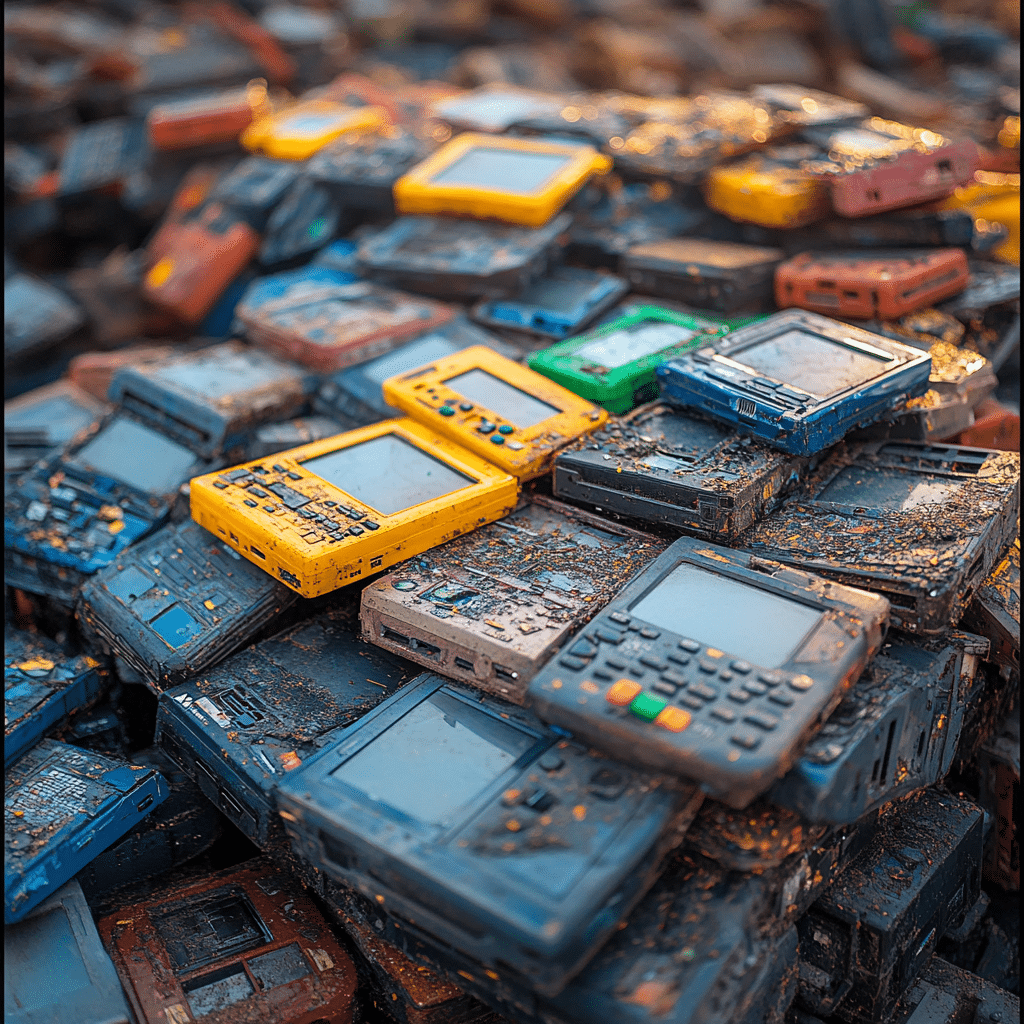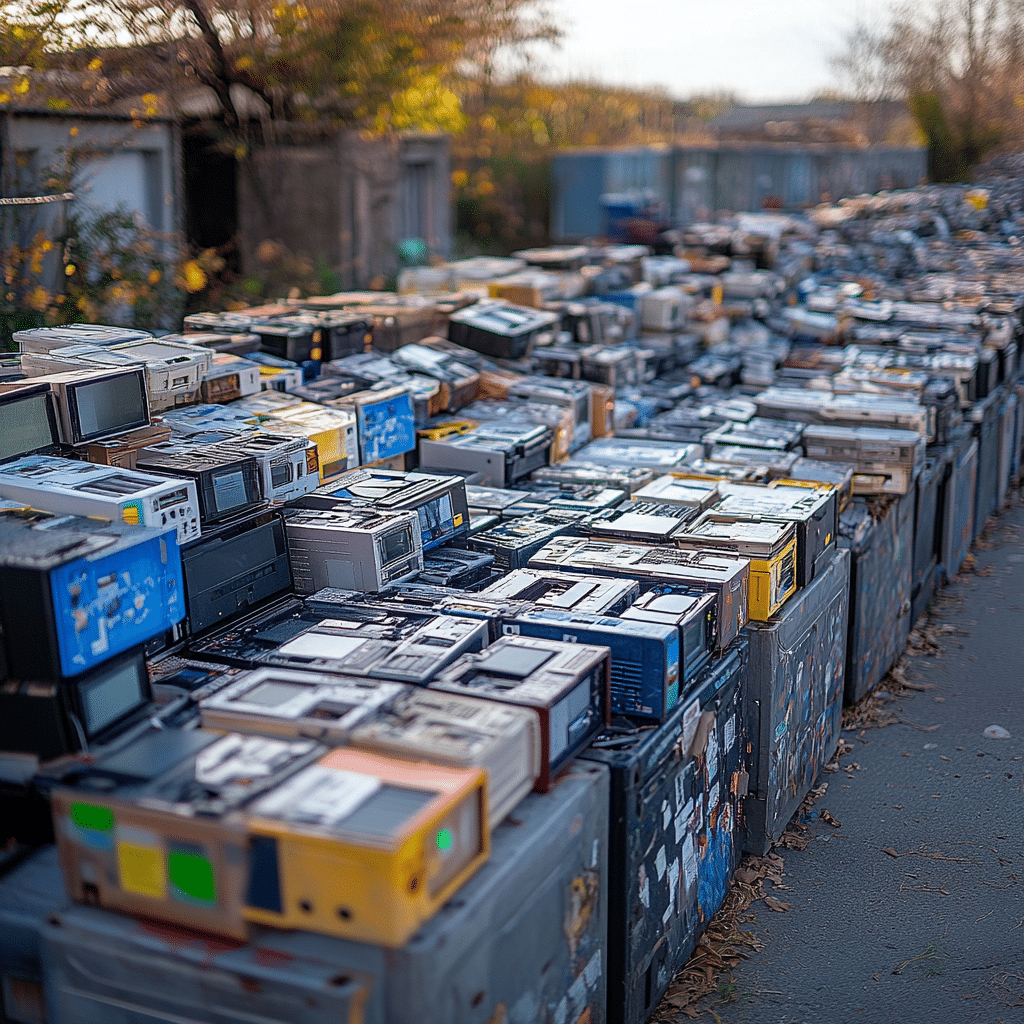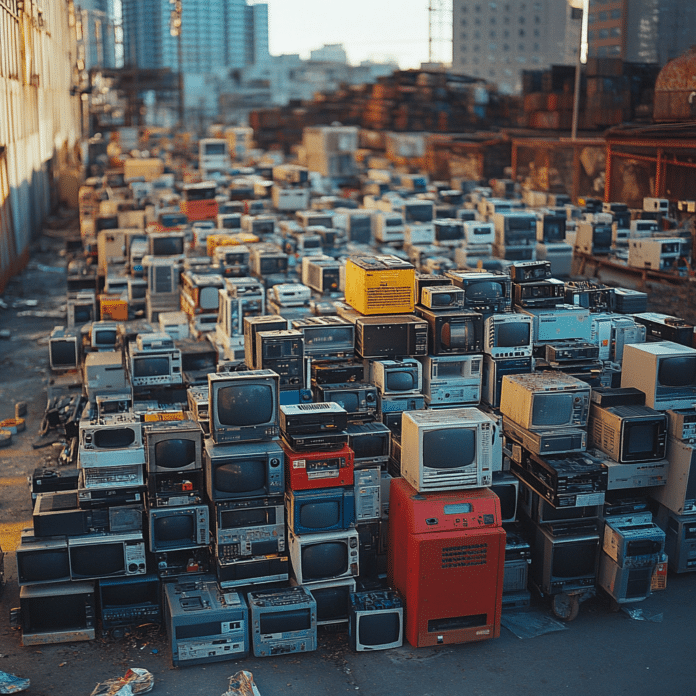1. The Importance of Electronics Recycling in 2024
In 2024, the spotlight is firmly on e-waste. With rapid advancements in technology, the sheer volume of electronic waste (e-waste) has skyrocketed, hitting a staggering 57.4 million metric tons globally in 2023. This rocky road of e-waste presents an urgent environmental challenge and signals a desperate need for effective recycling solutions. Best Buy Electronics Recycling has stepped up, becoming a beacon in the efforts to tackle this growing problem.
Why does recycling electronics matter so much? First off, e-waste is loaded with valuable materials like gold, silver, and copper, which can be recycled and reused. Secondly, the improper disposal of electronics can lead to toxic substances like lead and mercury leaking into our environment. By championing recycling programs, Best Buy is working not just to divert these items from landfills but also to conserve these finite resources—an essential step for our planet.
But it’s more than just throwing old gadgets in a bin. Responsible recycling is about creating a sustainable ecosystem where both consumers and companies contribute to a greener future. As we navigate the currents of environmental responsibility, Best Buy Electronics Recycling stands as a critical player, urging individuals to think before they toss out old devices.

2. Top 5 Ways Best Buy Electronics Recycling is Changing the Game
Best Buy isn’t just another retail giant; it’s a trailblazer in sustainability. Here are five standout ways that Best Buy Electronics Recycling is making waves in the e-waste arena:
2.1. Comprehensive Collection Programs
It couldn’t be easier to recycle your electronics thanks to Best Buy’s comprehensive collection programs. With over 1,000 stores scattered across the United States, consumers can conveniently drop off unwanted devices. This accessibility is paramount, removing barriers that often keep folks from recycling. Whether it’s that outdated TV or an old laptop, there’s very likely a Best Buy nearby just waiting to take it off your hands.
2.2. Responsible Disposal and Data Security
One concern that often weighs heavily on consumers is data security. When recycling old electronics, the last thing anyone wants is for their personal information to fall into the wrong hands. Best Buy handles this with care, ensuring that all data is thoroughly obliterated. By using certified methods for data destruction, Best Buy alleviates those privacy fears and strengthens trust in the recycling process.
2.3. Partnering with Certified e-Stewards
In its mission for sustainability, Best Buy collaborates with certified e-Stewards in the recycling industry. These organizations adhere to stringent guidelines for handling e-waste responsibly. By working together, they ensure hazardous materials are dealt with appropriately and valuable resources are reclaimed. This partnership educates consumers on where their electronics go and reaffirms the brand’s dedication to environmental responsibility.
2.4. Education and Community Outreach
While recycling is vital, education plays an equally crucial role. Best Buy takes initiative through community outreach programs focused on informing people about e-waste dangers and recycling processes. Their Tech Health platform provides insight on how to properly identify and recycle electronics, empowering consumers to participate in responsible recycling.
2.5. Integration with Corporate Responsibility
Best Buy Electronics Recycling permeates the fabric of the company’s corporate responsibility strategy. By striving to reduce its carbon footprint, the company moves toward a more sustainable future. This commitment isn’t just talk; it’s a significant leap toward a circular economy where products are reused and repurposed, addressing the critical grievance of climate change.
3. Best Buy Recycling vs. Competitors: A Comparative Analysis
To understand the impact of Best Buy’s initiatives, let’s pit it against some competitors like Amazon, Costco, and Sears.
3.1. Best Buy vs. Amazon
Amazon’s trade-in program is enticing, offering gift cards in exchange for old electronics. However, it falls short compared to Best Buy’s straightforward approach. With minimal restrictions on the types of items accepted and numerous drop-off points, Best Buy simplifies recycling a lot more than Amazon does. This aspect isn’t just about convenience; it’s about opening doors for consumers to recycle widely.
3.2. Case Study: Costco’s Response to Recalls
Costco, known for quality and safety, recently faced a challenge with recalls involving listeria contamination. While they prioritize consumer safety, they haven’t necessarily tackled the e-waste issue with distinct recycling initiatives, unlike Best Buy. Other grocery chains venturing into electronics might sell gadgets, but they lag behind in meaningful recycling practices that Best Buy exemplifies.
3.3. Sears’ Limited Offering
Sears has made headlines primarily through its home warranty services, which focus predominantly on home repairs. The company lacks a notable electronics recycling initiative, further distancing itself from best practices in sustainable electronics management that Best Buy readily embraces. Thus, Best Buy stands out not only as a retailer but also as a champion of sustainability in the tech retail landscape.

4. The Financial Implications of E-Waste Reduction
The financial benefits of embracing sustainable practices can’t be understated. Companies like Best Buy engaging in responsible e-waste management can cut down waste disposal costs. Consumers also find recycling programs advantageous—like Trade-In options that allow customers to snag discounts on new purchases. This economic advantage makes Best Buy’s recycling initiative a win-win for both parties.
Not only is recycling your electronics good for the planet, but it can also fatten your wallet. Check this out: the value recovered from recycling metals alone can significantly offset the costs associated with waste management. So, in a world where every penny counts, Best Buy Electronics Recycling can only be seen as a savvy move.
5. Looking Forward: The Future of Electronics Recycling
As we move into the second half of 2024, the need for sustainable electronics recycling will undoubtedly keep rising. The integration of digital solutions like blockchain technology promises enhanced transparency in monitoring e-waste. Best Buy is well-positioned to lead this charge, continuously adapting and ensuring environmental integrity.
Moreover, with the likelihood of increasing regulatory pressure looming over the e-waste industry, the spotlight will shine even brighter on companies like Best Buy. More businesses are expected to jump on the bandwagon and adopt proactive recycling solutions. As environmental issues escalate, expect corporations to become more vocal about their responsibility, embracing models reminiscent of Best Buy’s holistic approach to sustainability.
An Innovative Path Forward
Best Buy Electronics Recycling exemplifies a transformative shift towards responsible consumer behavior and sustainable practices. It calls on consumers to rethink how they view e-waste—not just as trash but as a valuable resource. With innovative initiatives underway, Best Buy is setting an inspiring example for other companies, marching toward a shared goal of sustainability.
With many businesses now looking closely at their environmental footprints, the proverbial pen has been set in motion. Best Buy shows how a focus on recycling can create ripples, promoting awareness and action throughout the industry. With sustainability being the new norm, Best Buy Electronics Recycling helps consumers and corporations alike envision and create a cleaner, greener world for future generations.
Best Buy Electronics Recycling: Changing E-Waste Forever
A Game Changer for E-Waste Disposal
Did you know that Best Buy is leading the charge in electronics recycling? As one of the largest electronics retailers in the U.S., they’re on a mission to tackle the growing problem of e-waste. By recycling up to 1 million pounds of electronic waste every month, Best Buy is making a significant dent in reducing landfill overflow. It’s impressive to think that, much like a train From Venice To Rome serves as a vital connection, Best Buy acts as a lifeline between consumers and sustainable practices. This effort not only benefits the environment but directly impacts communities by promoting responsible disposal methods.
Fun Facts About Recycling
Here’s something to chew on: Best Buy’s recycling program has been running since 2009 and offers free recycling for a wide range of items, including TVs, computers, and even cell phones. That means every time you drop off an old gadget, you’re contributing to a cleaner planet! In fact, the initiative has inspired other companies to follow suit, creating a ripple effect similar to how Thomas Rhett Songs influence listeners to embrace change. Plus, this effort aligns with everyday practices, much like how many people are captivated by the charm of a black Maine coon cat, showcasing the beauty of sustainability in all forms.
Community Engagement and Education
Beyond recycling, Best Buy also engages with local communities to raise awareness about e-waste. They often host events where residents can learn about the dangers of improperly disposed electronics, which is crucial for a healthier environment. Fun fact: the average consumer replaces their smartphone every two years, and Best Buy wants to ensure those are recycled properly. Just like a poster girl dress is a fashion hit, a well-planned recycling strategy can make a long-lasting impression on our planet. Plus, with the growing popularity of figures like Ange Postecoglou in sports, we see how well-planned strategies can yield success across various fields.
So, next time you’re ready to upgrade your tech, remember that Best Buy’s electronics recycling initiatives are changing the game, making it easy for us all to participate in a greener future. Whether you’re excited about the upcoming Happy Gilmore 2 release date or trying to define deed in real estate, there’s always room to learn how your choices affect the planet.




